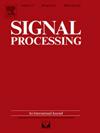Game-theory-based complexity allocation for 360-degree video coding
IF 3.4
2区 工程技术
Q2 ENGINEERING, ELECTRICAL & ELECTRONIC
引用次数: 0
Abstract
360-degree video applications with immersive experiences have been well spread in our daily life. However, 360-degree video with high resolution (e.g., 8192 3072, and 3840 × 1920) leads to high coding computational complexity. To further optimize the complexity allocation and obtain the optimal coding performance, this paper proposes a game-theory-based complexity allocation algorithm for 360-degree video coding. The proposed method first constructs the latitude-level complexity allocation model by introducing game theory. Second, the optimal Lagrange coefficient value is obtained by the Newton method, and then, the complexity of the latitude can be further obtained. Finally, the overall complexity allocation algorithm is also designed. Experimental results indicate our method obtains Time Saving (TS) with 18.44%67.08% and BDBR performance with 0.10%3.11%. The proposed method also achieves the optimal Coding Gain (CG) values for the most global target complexity.
基于博弈论的360度视频编码复杂度分配
具有沉浸式体验的360度视频应用已经在我们的日常生活中得到了很好的普及。然而,高分辨率的360度视频(例如8192×4096、6144× 3072和3840 × 1920)导致编码计算复杂度很高。为了进一步优化复杂度分配,获得最优的编码性能,本文提出了一种基于博弈论的360度视频编码复杂度分配算法。该方法首先引入博弈论,构建了纬度层次的复杂度分配模型;其次,利用牛顿法求出最优拉格朗日系数λ *值,进而求出纬度的复杂度;最后,设计了总体复杂度分配算法。实验结果表明,我们的方法获得了18.44% ~ 67.08%的时间节省(TS)和0.10% ~ 3.11%的BDBR性能。该方法还能在最大全局目标复杂度下获得最优的编码增益(CG)。
本文章由计算机程序翻译,如有差异,请以英文原文为准。
求助全文
约1分钟内获得全文
求助全文
来源期刊

Signal Processing
工程技术-工程:电子与电气
CiteScore
9.20
自引率
9.10%
发文量
309
审稿时长
41 days
期刊介绍:
Signal Processing incorporates all aspects of the theory and practice of signal processing. It features original research work, tutorial and review articles, and accounts of practical developments. It is intended for a rapid dissemination of knowledge and experience to engineers and scientists working in the research, development or practical application of signal processing.
Subject areas covered by the journal include: Signal Theory; Stochastic Processes; Detection and Estimation; Spectral Analysis; Filtering; Signal Processing Systems; Software Developments; Image Processing; Pattern Recognition; Optical Signal Processing; Digital Signal Processing; Multi-dimensional Signal Processing; Communication Signal Processing; Biomedical Signal Processing; Geophysical and Astrophysical Signal Processing; Earth Resources Signal Processing; Acoustic and Vibration Signal Processing; Data Processing; Remote Sensing; Signal Processing Technology; Radar Signal Processing; Sonar Signal Processing; Industrial Applications; New Applications.
 求助内容:
求助内容: 应助结果提醒方式:
应助结果提醒方式:


